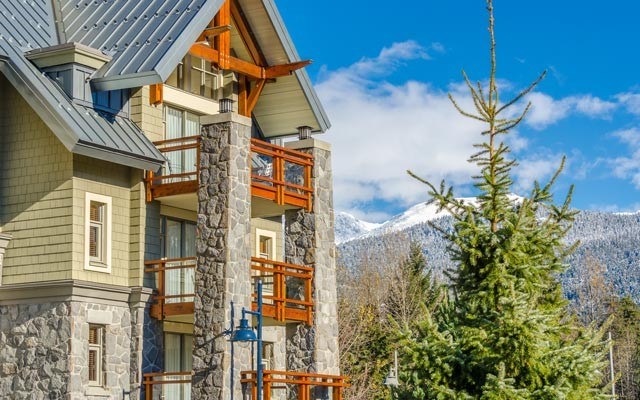Once again Whistler has shown its incredible sense of community through its outpouring of support for the victims of last week's Alpine House fire.
In fact the support was almost overwhelming for the agencies, which found themselves drawn in.
But the elephant in the room, and the dread everyone felt going forward, was around where these displaced residents were going to find a place to live in November... in Whistler.
All across Canada, cities and towns alike are trying to find ways to deal with the issue of affordable housing and having enough of it. And a crisis just makes it all the more visible in a community.
In many ways Whistler is ahead of the curve on the issue of affordable housing, but there is no escaping the fact that as the resort gears up for winter every year, the housing crunch is front and centre.
Almost a year ago, at the Union of BC Municipalities annual conference, leaders had housing at the top of their list of concerns.
Big cities and large municipalities are grappling with a slightly different problem than we face — they need more social housing and affordable housing for the truly vulnerable, much of which flows through federal programs.
The federal government funds 600,000 units of affordable rental housing in Canada, largely aimed at those who are most at risk: low-income seniors, disabled persons, families in deep need, Aboriginal peoples and those suffering with mental health and addiction issues.
This year, the federal government will spend $1.6 billion on that social housing. But it's not enough, says Tony Roy, executive director of the BC Non-Profit Housing Association, because the real issue is that the federal government stopped building new social housing in 1993.
Whistler's need for affordable housing has been complicated in recent years by the rise of illegal nightly rentals in the resort and such accommodation providers as Airbnb.
Looking back it is worth recalling that almost every affordable housing complex built in Whistler faced opposition from the community. But governments of the day kept the community need as a guiding principle and developers brought the projects online from 19 Mile Creek to Rainbow.
Along the way there have been other options, including looking at in-fill sites, strata titling suites in existing home and even putting employee restricted housing on Whistler Golf Club. (Pique founder Bob Barnett's editorial on that idea in 2003 might have been the No. 1 letter generator in the magazine's history!)
What is needed as well are rental units — and the Alpine House fire has brought that home to the community in a compelling way.
There is hope on the horizon on that front as the Whistler Housing Authority (WHA) is moving on this issue with a development coming online in the Cheakamus in 2017.
The proposed development — a $5.5-million, 100-bed employee rental apartment building — is currently moving through the zoning process at the municipality.
Rainbow will also have 65 rental units available.
And it's not a moment too soon as the WHA reports that rental waitlist applicants are 25 per cent higher than they were in 2014.
Perhaps, like Vancouver, we need to work with developers to get them to choose to build rental units over units for sale. To the south of us, The Duke, a 14-storey project in Mount Pleasant, Vancouver, will be completed in August 2017, offering 201 homes, all of which will be market rental.
According to an article in the Vancouver Sun, Edgar Development Corp. is building the Leadership in Energy and Environmental Design (LEED) Gold building, which will also have 1,500 square metres of retail space on the ground level.
The project is using the City of Vancouver's Rental 100 program which waives the development cost levy, eases parking requirements, relaxes unit size and allows for more density beyond the existing zoning criteria. Vancouver expects the Rental 100 program will help it to create an additional 5,000 units of market rental housing by 2021.
Should Whistler consider working with developers to allow more of this type of unit in the future?
What would "working with developers" look like in Whistler?
What Whistler knows for sure is that working on housing and retention strategies has been, and will continue to be, one of the top priorities for the resort.




